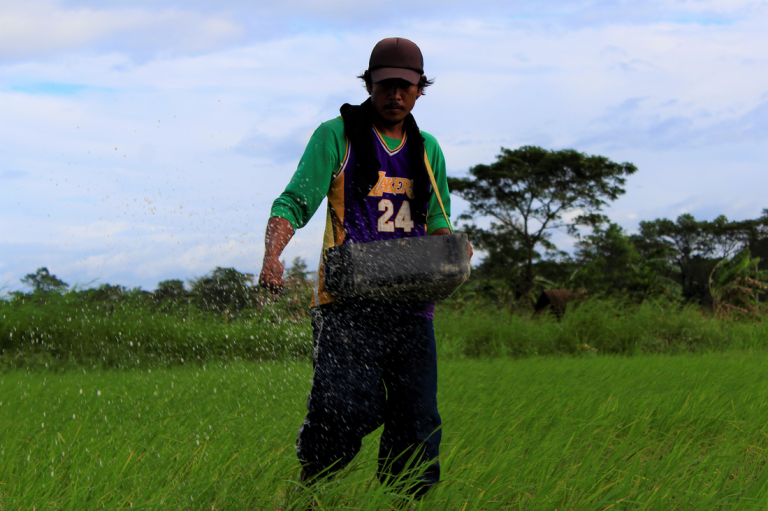
Research group IBON said that the Duterte administration’s anti-inflation measures are reckless stop-gap measures that will ironically harm domestic agriculture, displace farmers and fisherfolk, and worsen food insecurity. The group also said that the government should use its vast authority to take much more decisive steps to reduce inflation.
President Duterte issued Administrative Order (AO) No. 13 to remove non-tariff barriers on agricultural products and streamline administrative procedures. These are on top of Memorandum Order (MO) No. 27 which aims to reduce distribution costs and MO No. 28 on releasing rice from National Food Authority (NFA) warehouses.
“AO 13 is a Trojan Horse exploiting the current inflation crisis to advance the economic managers’ ideological agenda of liberalizing agriculture,” IBON executive director Sonny Africa said. The legality of AO 13 is also questionable, he said, as an administrative order is apparently being used to change Republic Acts that have been passed by Congress and are presumably superior to mere administrative orders.
Africa added that liberalization will keep the country chronically dependent on imported food and vulnerable to the availability of global supplies. “It is so odd that our economic managers still insist that liberalization will develop the sector,” he said. He cited countries that continue to protect their agricultural sectors such as Vietnam and Thailand, from which the Philippines imports rice, and advanced industrial powers such as the United States, European Union and Japan.
“It is fine and even necessary to import farm and fishery products if domestic supply really is tight but this should only be as a short-term emergency measure,” said Africa. The administration is however going overboard in permanently removing important protection for Filipino farmers and fisherfolk through tariffication, lower tariffs and scrapping non-tariff barriers. Budget cuts in the Department of Agriculture (DA) also continue the long-standing problem of just 3-5% of the national budget being alloted for agriculture.
The group said that immediate relief from importing farm and fishery products cannot substitute for food security from genuinely developed local agriculture. “We have to improve rural productivity and expand farm and fisheries output by supporting our producers,” Africa said. Recklessly exposing them to cheap imports will just destroy rural livelihoods and stunt domestic supply.
These stop-gap measures also do not address other major sources of inflationary pressure – the Tax Reform and Acceleration and Inclusion (TRAIN) and higher taxes that are directly within government’s control, peso depreciation from chronic trade deficits, and global oil price movements liberated from domestic regulation, said Africa.
“There has to be a genuine effort to improve domestic agricultural and fisheries production. These should also give stress to farmers’ and fishers’ access to production resources, and sustainable methods such as organic agriculture to protect our environment. Government should give technology, inputs and price support. These will not only lessen pressure on the chronic trade deficit, but will ensure long-term food security,” he said. ###